How to make an applique of the constellation Ursa Major. How to make a bear from plasticine
In today's master class with step-by-step photos, I will tell you how to make a bear from plasticine. Of course, we will make it with our own hands, mainly from brown material. You will also need a piece of black for the paws and just a little white for the eyes. Children absolutely love bears; they are one of the kids’ favorite creations, so don’t deny them this and help them make a craft. As always, you can use a plastic knife to cut the plasticine or divide it with your hands, as many do. Homemade takes on average 15-25 minutes. The bear will be sedentary and kind, I took a lesson of medium difficulty.
We prepared the material.
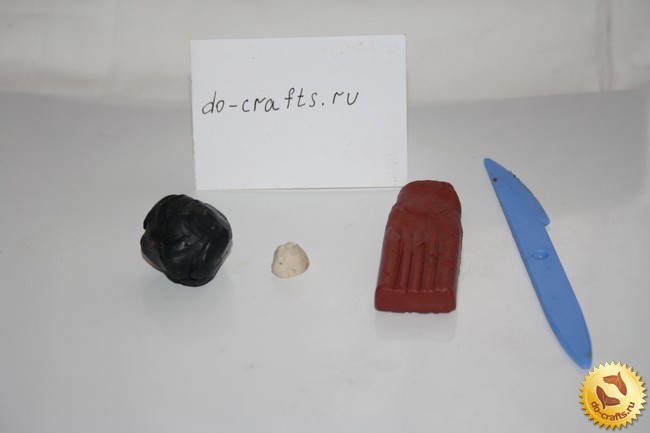
Let's start, of course, with the head and torso. Roll a large ball for the head.
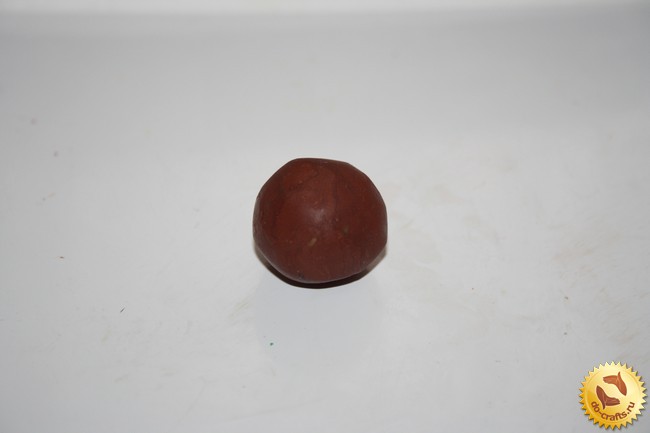
Now we will roll a small barrel for the body, it will be slightly smaller than the head, but longer. Moreover, on one side it is a little narrowed.

We connect two parts, head and torso.

Roll two balls for the ears. Not too big.
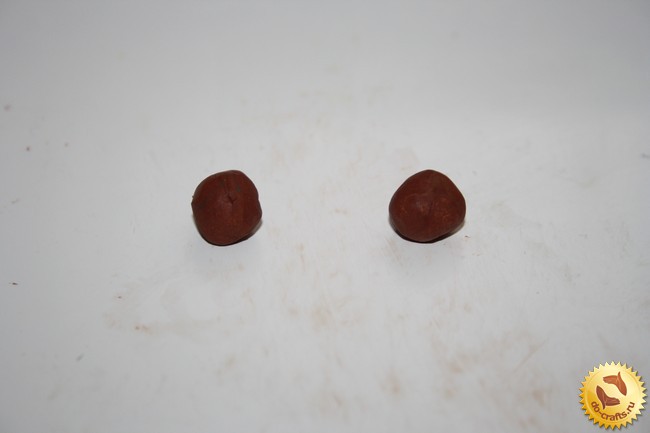
They need to be flattened.
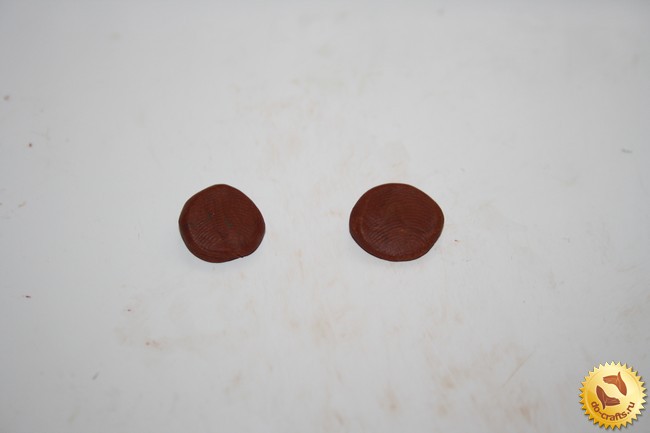
We attach ears to the bear’s head so that they look realistic. We sculpt them a little in an arc.
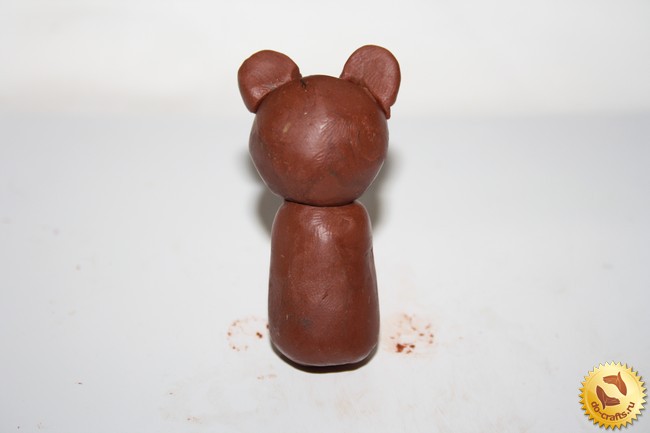
Let's do the arms and legs. Roll four completely identical balls.
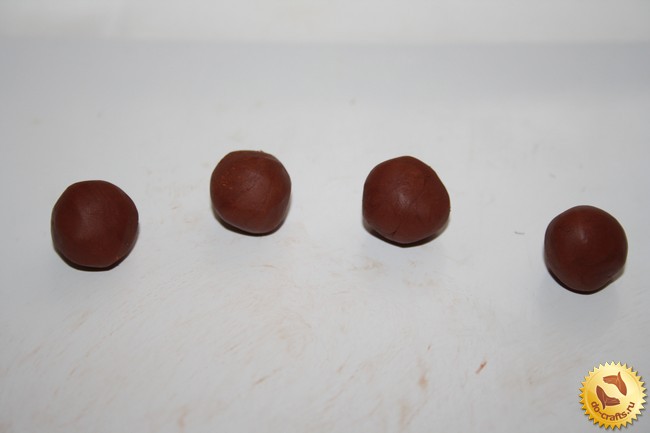
We mold them into four cones, very narrowed on one side and widened on the other.
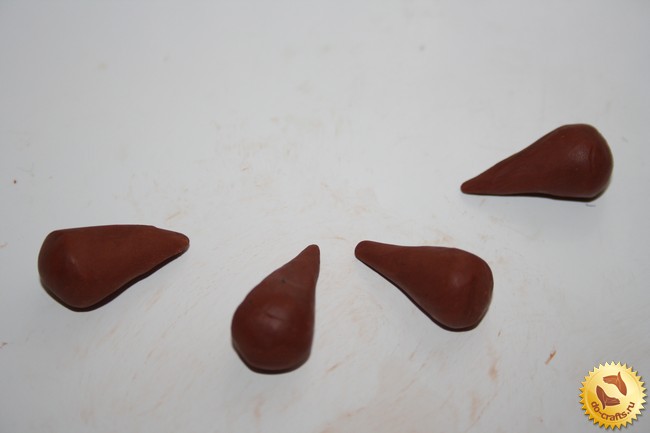
And, naturally, we connect the legs and arms with the body.
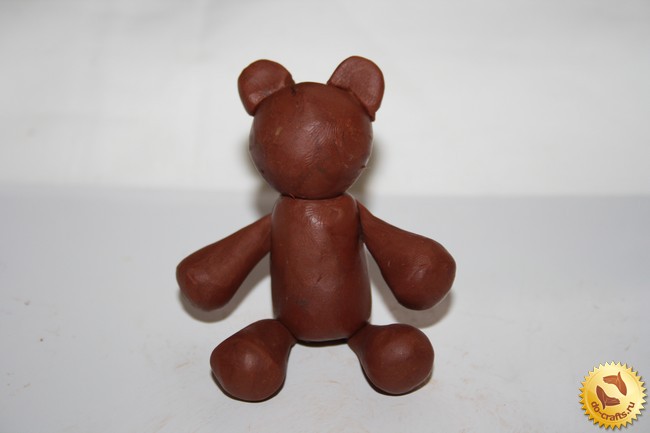
Let's make a small ball for the muzzle.
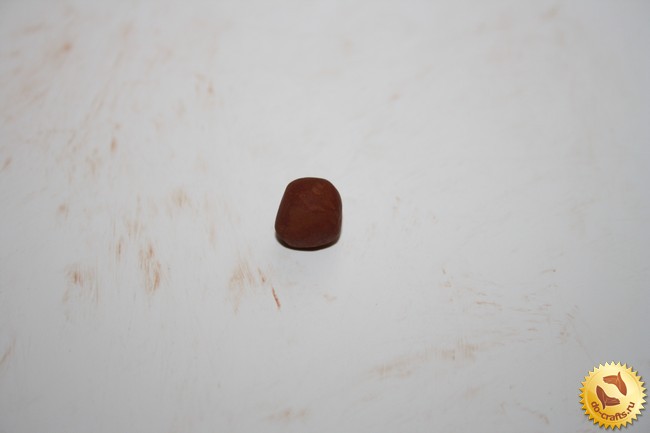
Place the ball forward on your head.
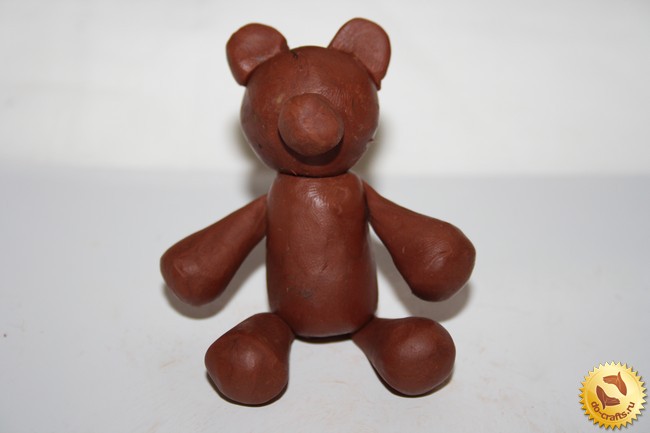
Roll the black nose into a slightly smaller size.

We put the nose on the face.
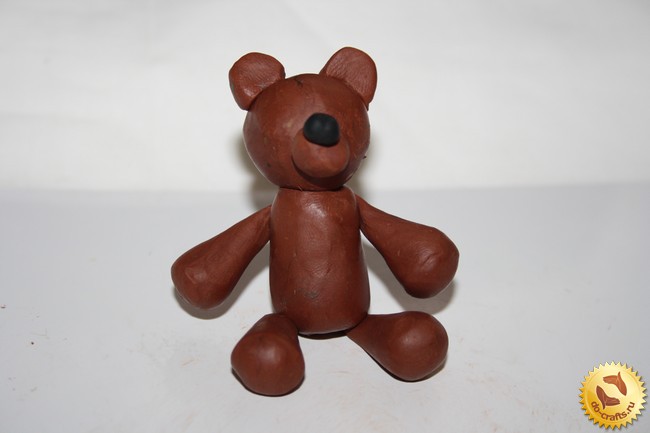
Like many other animals, we create eyes. Two white balls and two black ones, slightly smaller in size.
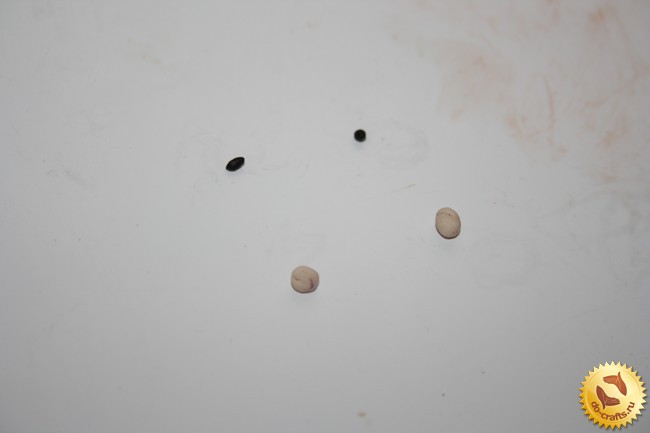
Making eyes on the bear.
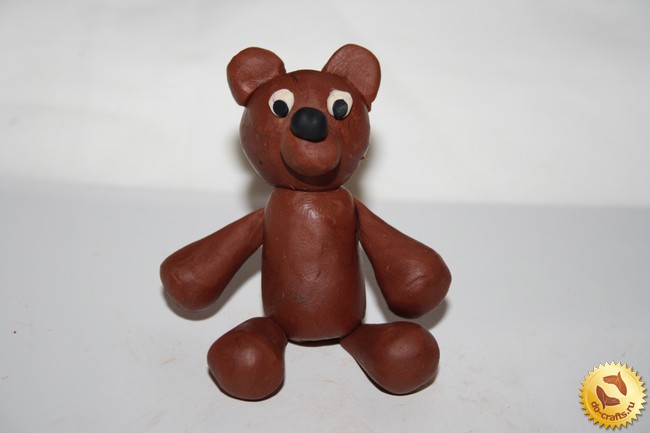
Let's take care of the paws. For beauty, I will make the hind legs with toes, and just small cuts on the front legs. Roll two larger and six smaller balls from black plasticine.
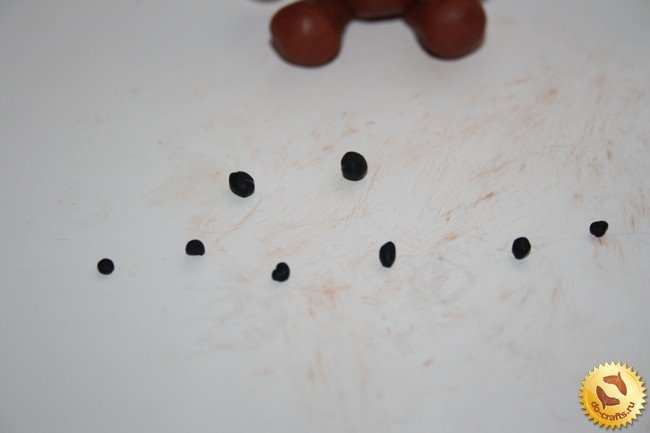
We place a large ball on the foot, and three smaller ones around it, and similarly on the other. Using a knife, we make an incision in the form of a mouth and on the front paws in the form of claws.
This is the kind of bear made from plasticine, it’s very easy and incredibly interesting to make.

This is what it looks like from behind.

Do you know that in addition to brown and polar bear Are there other varieties of this beast? They come in black and black and white and striped. No, of course, only zebras have stripes, but bears can be found with a crescent moon and a sun on their chests.
Brown bear and white
But we will start with the brown bear, the same one that we remember from illustrations from Russian folk tales. We start sculpting by preparing future parts: head, nose, ears, torso, four legs and tail. Carelessness is allowed here, simplify, the main thing is to separate the material into proportional pieces. Then we connect the parts of the body and assemble the head separately. Having attached the nose ball to the head, you need to smooth out the transition from the nose to the head, this is how the muzzle is formed. We connect the head and torso. I went over the entire bear figurine with a stack. The unevenness imitates wool.
We make the polar bear in the same way. Please note that while the brown one has a rounded head and body, the white one has a more elongated, oval shape. Both bears have black noses and black eyes made of plasticine balls.
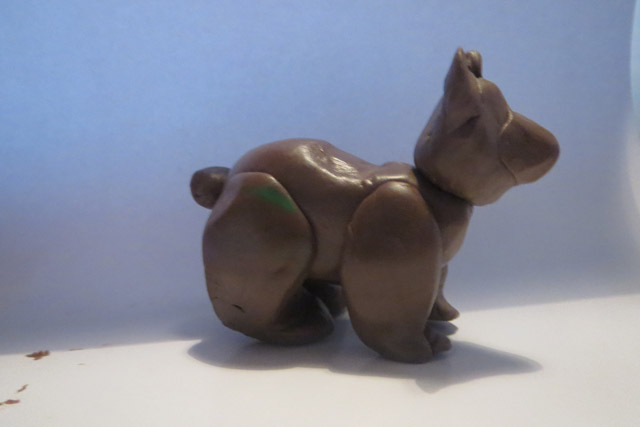
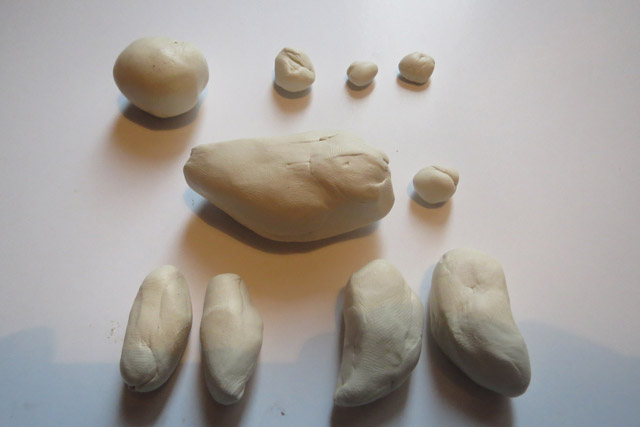



Black bears
These exotic bears are similar to each other; they are all made from the same type of blanks. We will make the figures seated to make the distinctive features of the bears more visible. The Himalayan has a white mark on the chest in the shape of a crescent or the letter “V”. In the Malayan bear, this sign has a rounded shape. There is also a sloth bear. To make it, simply enlarge the Malay's mouth and remove the white spot. By the way, we make the mouth of all bears into a stack, which has the shape of a semicircle or petal. Well, there’s no need to talk about the spectacled bear, everything is already visible. The glasses are made from thin strips of plasticine. Strokes are applied on top of them in a stack to convey the texture of the wool. Black bears have long claws on their paws, and there are strokes on the plasticine made with a thin stack or stick.
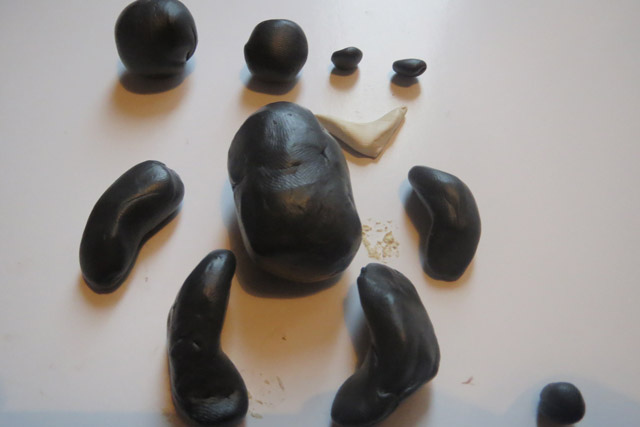
![]()

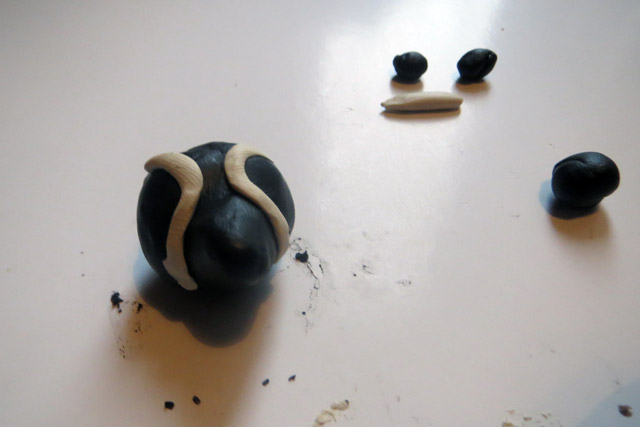

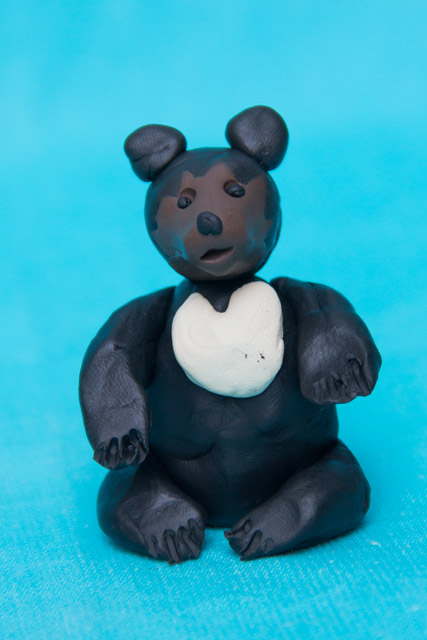
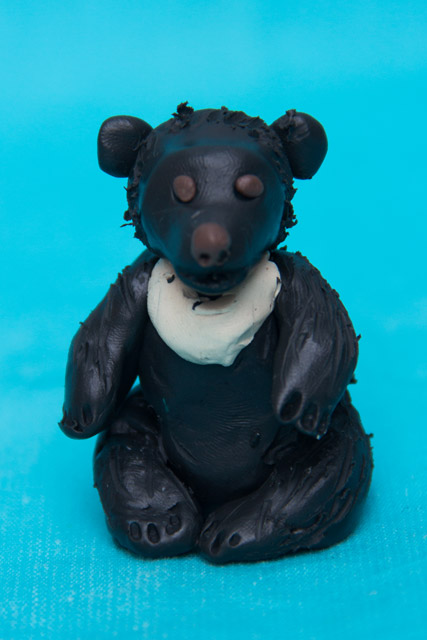

Almost every child has a favorite teddy bear with which he can play throughout the day. Today's master class will tell you how to make a copy of a teddy bear from ordinary plasticine. After completing all the steps indicated in the lesson, you will get a fun toy that you can play with. The modeling process is very simple, so the child can independently perform most work.
So, to sculpt a bear, let’s prepare some materials:

How to make a bear from plasticine
Step 1. Cut a small piece of mass from a brown block of plasticine and roll it into a ball. 
Step 2. Next, slightly compress the upper part of the ball and gradually stretch it out to get this shape. 
The body of the bear is ready.
Step 3. Roll another ball of the same diameter as the previous workpiece. 
The head is ready.
Step 4. From light brown plasticine we form the animal’s face. First we roll up a miniature lump of mass, and then flatten it and give it an oval shape. Glue the face blank to the bottom of the head. 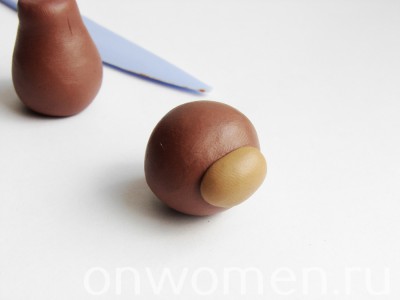
Step 5. We’ll also make a couple of ears. Flatten the brown ball and cut it in half. 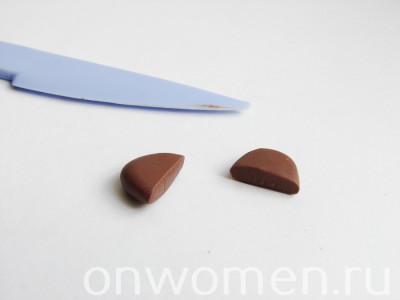
Before we attach the ears, we'll make some basic lines on the head to define the center. 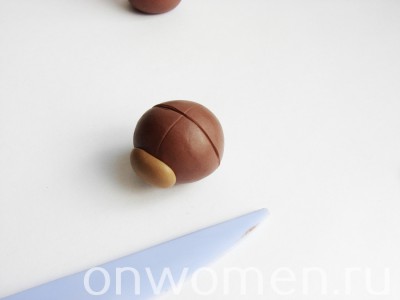
After that, glue them, retreating the same distance from the center. 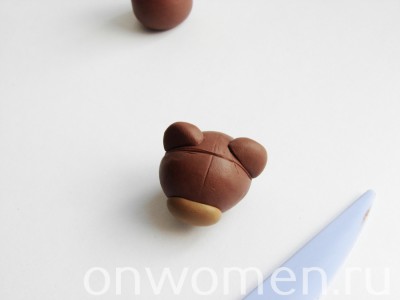
Step 6. We connect all the manufactured parts. 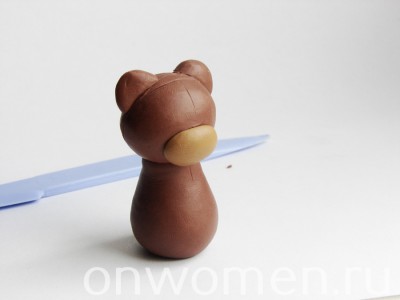
Step 7. Next we make two pairs of bear legs. Roll a brown ball into a sausage, divide it in half and form droplet-shaped legs from the resulting sticks. 


Step 8. Now let's put the bear in a sweater. To create it you will need blue plasticine. Roll out a piece of mass into a strip of uniform thickness. We bend its edge on either side. 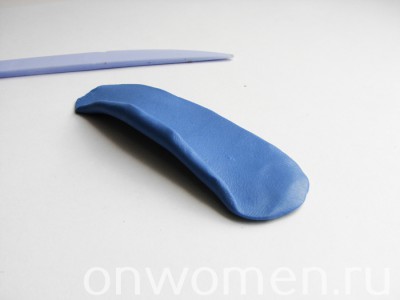
We wrap the blank around the bear's body, adjusting the bend of the collar in the process. 
We connect the strip to the back of the craft. Carefully cut it off, and smooth the joint with a plastic knife and fingers. 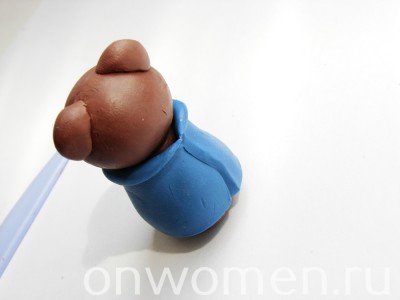
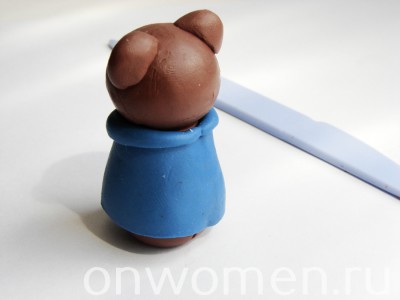
Step 9. We create the sleeves separately, using smaller blue stripes. We process the paws with them, cut off the excess and rub the seam. 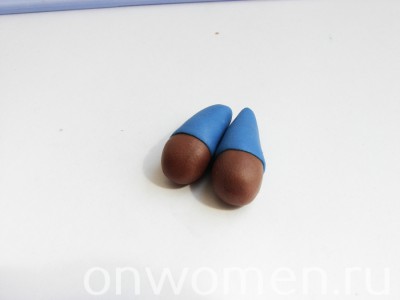
We fix a pair of legs on the base. 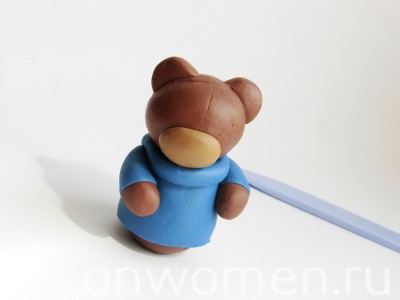
Step 10. Next you need to attach the lower legs. 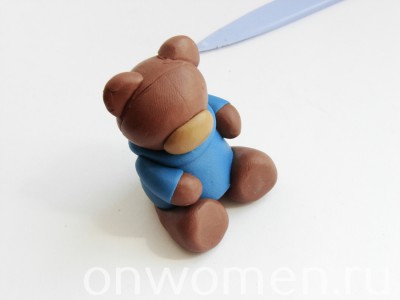
Step 11. We complement the pads of the large paws and the inside of the ears with light brown details. 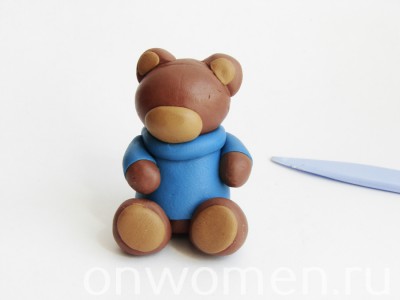
Step 12. We create a nose from blue plasticine, and then place it on the muzzle. 
